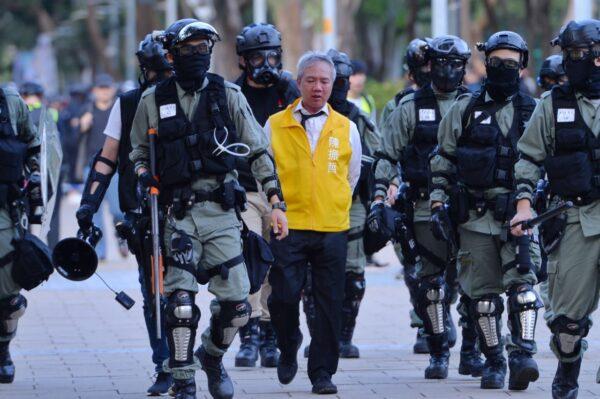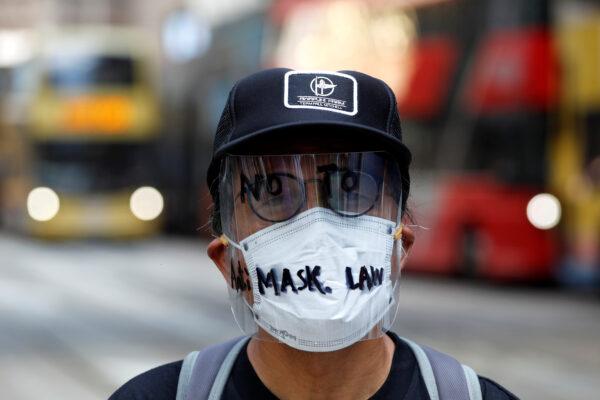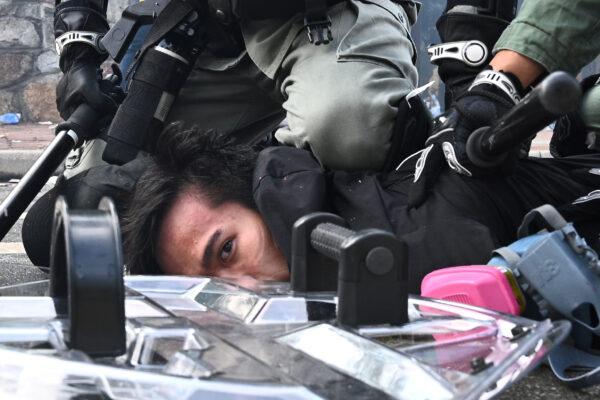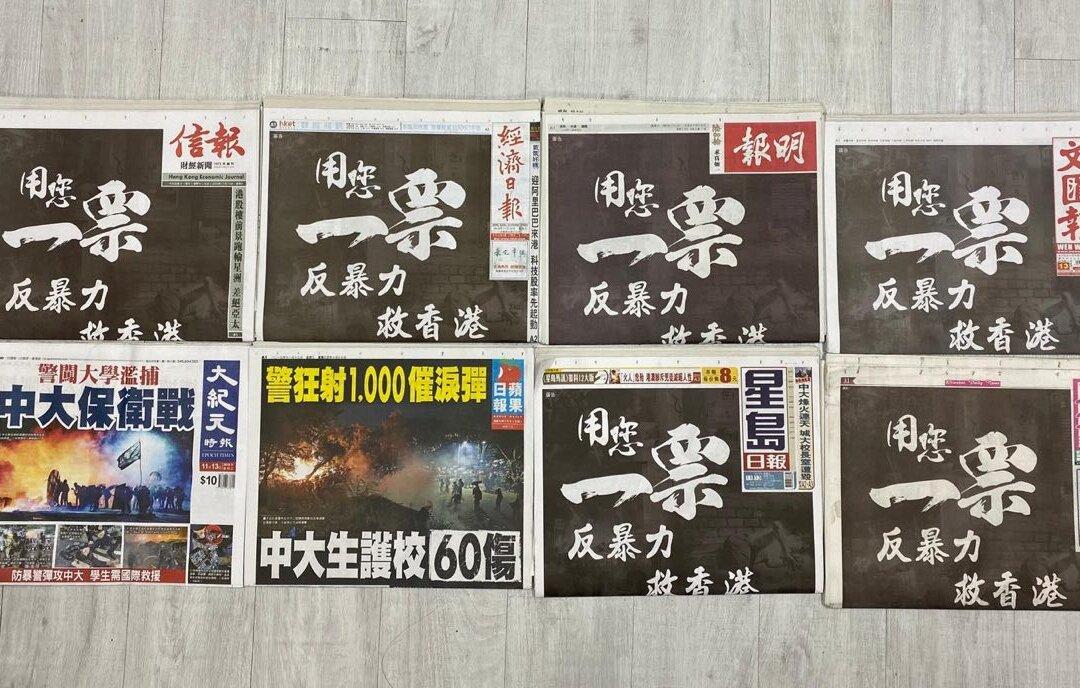Six prominent Chinese-language newspapers in Hong Kong ran the same ad on their front page calling for people to “oppose rioting,” a day after intense clashes between protesters and police at a university campus.
“Use your vote to oppose rioting and save Hong Kong,” the ad read, using an oft-repeated label used by Chinese and Hong Kong officials describing protesters as “rioters.”
The night before marked one of the most violent clashes since protests began in June. Police besieged the Chinese University of Hong Kong (CUHK) culminating into an hours-long standoff with protesters lasting late into the night. Officers fired tear gas, rubber bullets and deployed water cannon, while students set up blockades and hurled bricks and petrol bombs in response.
Police said in a Nov. 13 press briefing that they fired 1,567 canisters of tear gas, 1,312 rounds of rubber bullets, and 380 bean bag bullet rounds on Tuesday. At least 51 people, the youngest being 10 months old, were hospitalized due to the clashes.
CUHK, wrecked by damage from the clashes, announced it would end the school year one month early, calling off all classes.
Responding to the ads, Hong Kong pop singer and activist Denise Ho took to Twitter on Nov. 13 to express her disappointment by posting a photo with the front pages of eight different newspapers laid side by side.
She noted that Apple Daily, a local publication, and The Epoch Times were the only print media that chose to focus on the protests.
The ad’s message was directed to Hongkongers due to vote in the city’s district elections on Nov. 24. Although the arrest of several political candidates last weekend has raised fears that the elections may be postponed.

The newspapers that ran the ad include Wen Wei Po, known for its pro-Beijing stance, along with Ming Pao, Hong Kong Economic Journal, Hong Kong Economic Times, Sing Tao Daily, and Oriental Daily News.
According to a 2015 investigative report by Next Magazine, a Hong Kong publication, China’s Liaison Office—Beijing’s representative office in Hong Kong—fully owns a shell company in the Province of Guangdong, which also owns Wen Wei Po. The report also said the office owns Sino United Publishing, a Hong Kong company that dominates the city’s book publishing industry with a reported market share of 80 percent.
Charles Ho Tsu-kwok, the chairman of Sing Tao News Corporation and member of the standing committee of Chinese People’s Political Consultative Conference, an advisory body to the Chinese Communist Party, has repeatedly criticized protesters during the past five months of pro-democracy demonstrations.
On Oct. 3, two days after police shot and injured an 18-year-old protester, Sing Tao daily carried two editorials penned by Ho, in which he criticized the Hong Kong government for being “exceedingly soft” and urged the city’s leader Carrie Lam to ban protesters from wearing masks. He claimed that without masks, “rioters” would not have the courage to “openly break the law.”
The government announced a ban on masks a day later.

In January, Taiwan’s Mainland Affairs Council banned Wen Wei Po reporters from coming to Taiwan for up to three years for allegedly stalking three Hong Kong pro-democracy activists.
Ming Pao has also courted controversy lately for its pro-Beijing stance during the Hong Kong movement.
On June 13, the day after police used force for the first time since mass protests broke out, leading to 81 protester injuries, the newspaper carried an editorial characterizing the protests as riots and blamed a group of “radicals” for the conflicts.
Following the piece, a translator refused to translate the article into English. A group of Ming Pao employees also protested the article by taping a poster on an office window, saying that the editorial didn’t represent the employees’ opinions. They also wrote an open letter criticizing the article for ignoring the police’s role in escalating the protests.

Advocacy group Reporters Without Borders has downgraded Hong Kong’s press freedom ranking from 18 to 73 in its latest Press Freedom Index, citing “Beijing’s baleful influence.” The same index also ranked China as among world’s worst abusers of press freedom.
In a May 2019 poll conducted by the University of Hong Kong, over 1,000 participants gave the city’s press freedom an overall score of 5.81 on a scale of 1 to 10, marking a record low since 1997.
In a July report, the Hong Kong Journalist Association sounded the alarm about the “stifling” of the media, saying the past 12 months was “one of the worst years” for freedom of the press in the city.





